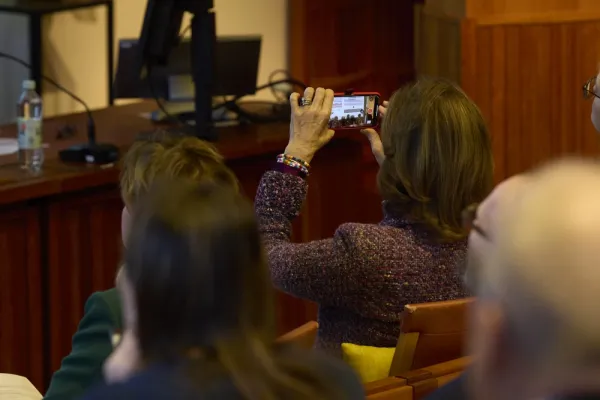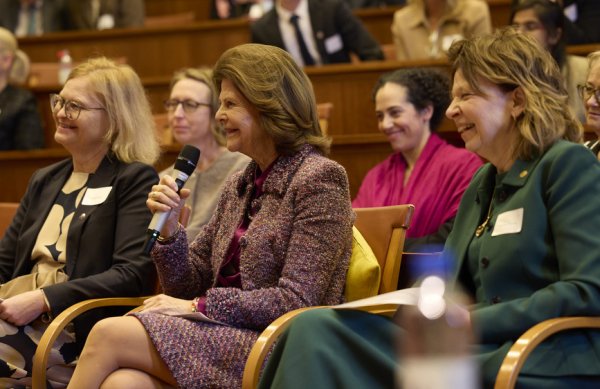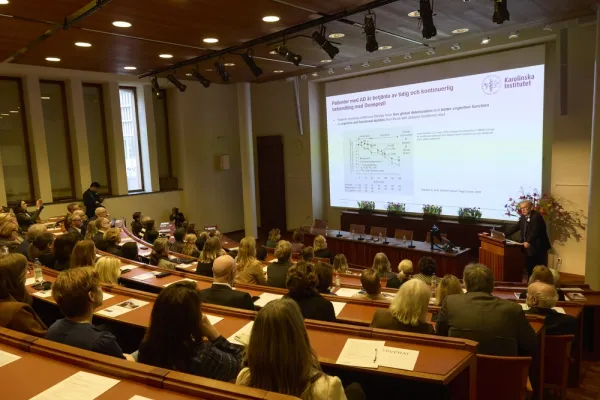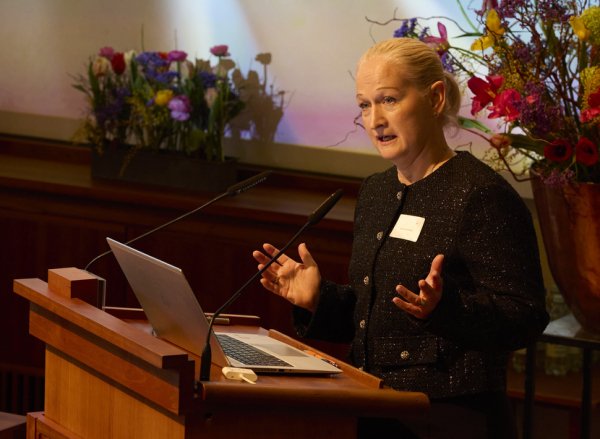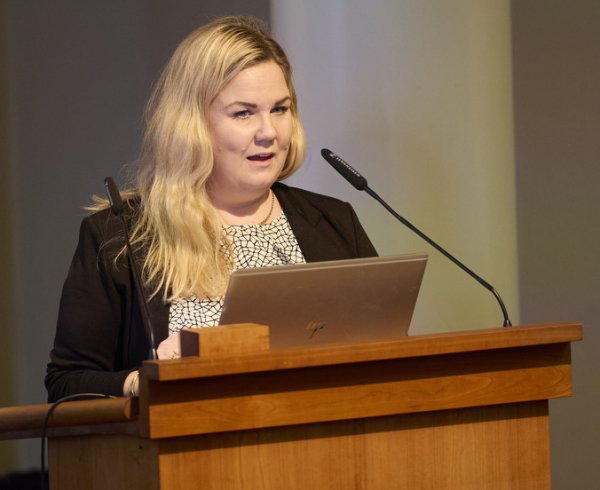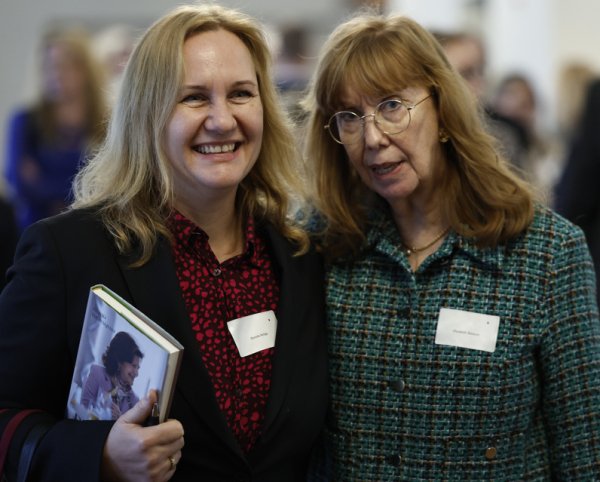On 30 January, a symposium on dementia was held in honour of HM Queen Silvia at Karolinska Institutet. The event was part of the "experience gift" that KI presented in connection with the Queen's 80th birthday.
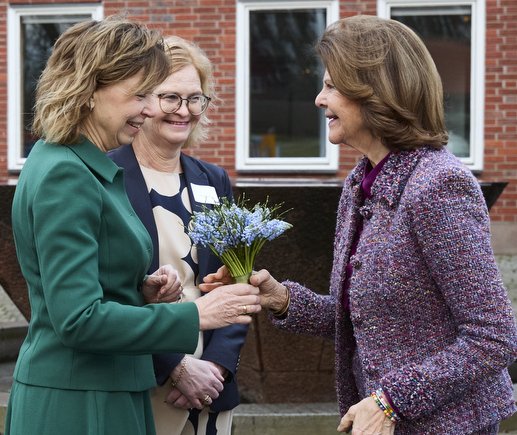
In connection with HM Queen Silvia's 80th birthday in 2023, Karolinska Institutet presented the gift of arranging symposia focusing on dementia and thus honouring the Queen's efforts for research and education in the field of dementia. This was the second symposium.
For many years, the Queen has shown a great interest in care and research in the field of dementia. In 1996, she was one of the founders of the Silviahemmet Foundation, which today, together with KI, conducts training in dementia care for occupational therapists, doctors and physiotherapists, among others.
Appreciation for increased awareness
The researchers who participated in the symposium represent the Department of Neurobiology, Care Sciences and Society at KI.
During the symposium, several speakers expressed their appreciation for the Queen's commitment to raising issues relating to Alzheimer's and other cognitive diseases.
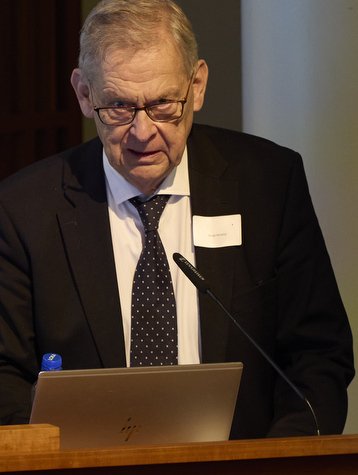
"To succeed with research, you need good ideas and great knowledge. But for the research to take place at all, we also need good contacts and resources," said Professor Bengt Winblad , a nestor behind KI's Alzheimer's research.
His lecture was an exposé of the development of knowledge in dementia, in which Karolinska Institutet has played an important role. At KI, the Centre for Alzheimer's Research is a hub for research into Alzheimer's disease and other dementias.
Early markers and opportunities with AI
Erika Jonsson Laukka , associate professor at KI, talked about about impaired sense of smell, which can be an early marker for dementia.
Silvia Maioli , senior research specialist, presented the possible connection between dementia and oestrogen deficiency and how menopausal women may therefore have a greater vulnerability.
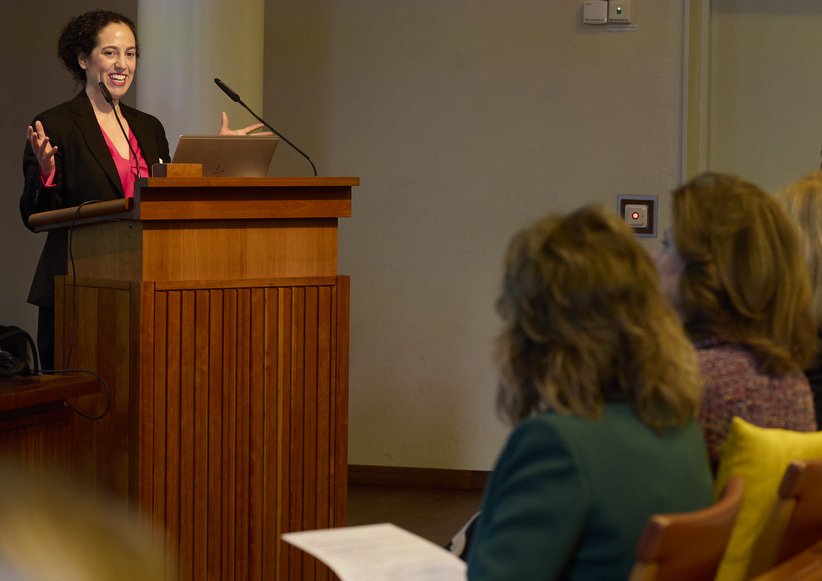
Associate Professor Sara Garcia Ptacek conducts research on machine learning with AI to search for already existing drugs, for example in the cardiovascular area, that can also have an effect on dementia.
Professor Dorota Religa and Associate Professor Anna-Karin Welmer presented the Silvia programmes at KI.
Among other things, they talked about how those who graduate from these contract education programs often have an important role in their organizations to spread evidence-based knowledge. For example, about new treatment options and to better listen to dementia patients and their relatives.
Younger patients and the FINGER study
In the area of clinical research and application, Malin Aspö , specialist nurse and researcher, presented examples of the difficulties faced by younger people with dementia.
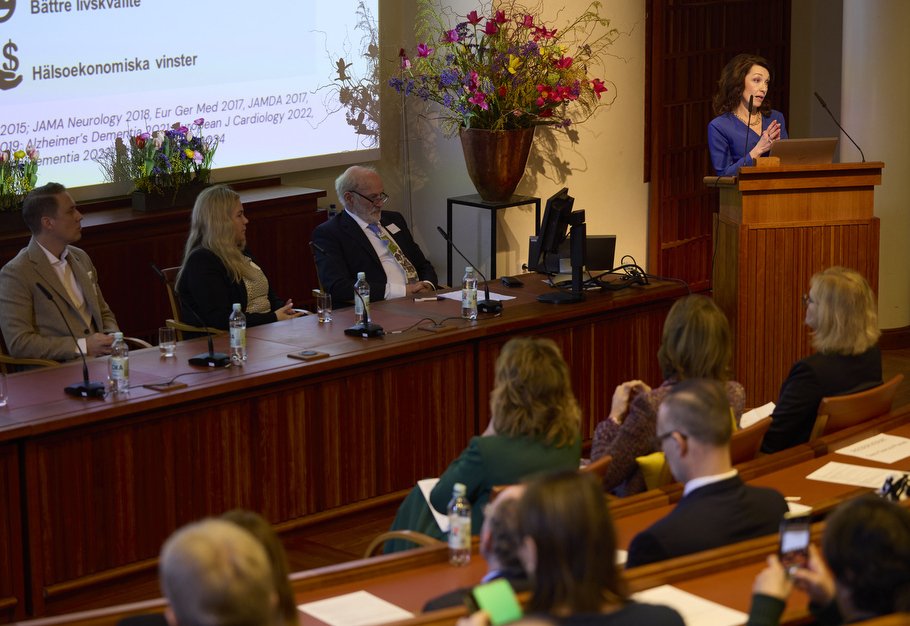
Professor Miia Kivipelto presented the latest from the large FINGER study on risk factors and health factors associated with dementia, a study that is now spread all over the world.
Brain imaging has played a major role in understanding the causes and progression of dementia, and Professor Eric Westman talked about the latest in research with PET and MRI cameras.
Multiple ways to provide support
The Queen concluded by thanking her for a wonderful day, and told about a relative who, like her, has been involved in dementia research, but in Germany.
In a campaign to raise public awareness of dementia, the relative, and everyone who worked with the patient group, wore bathrobes that they walked around in even outside the home for a day.
"I wish we could raise awareness of dementia in the Swedish population so that we can all contribute to better help and support those who are affected," said the Queen.

